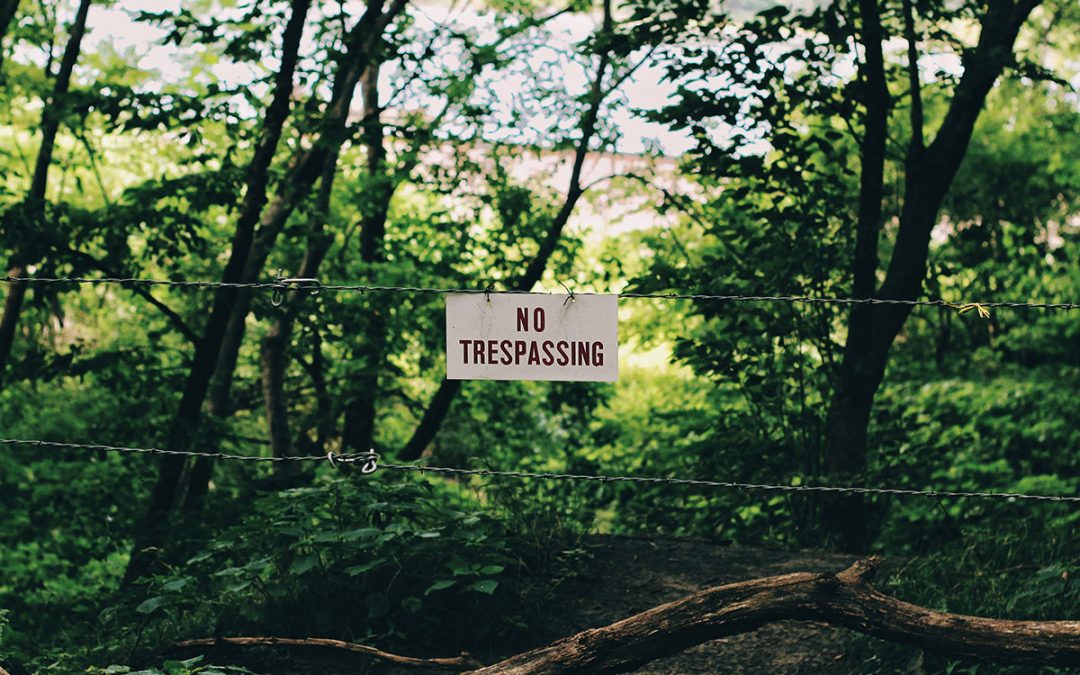We have all seen the signs that reads, “No Trespassing—Violators Will Be Prosecuted,” which sends a clear message that if you violate that boundary and cross the line, there will be a consequence. This type of boundary is easy to understand because you can see the sign and the border it protects.
Personal boundaries, on the other hand, can be harder to define because the lines are invisible, can change, and are unique to each individual. Personal boundaries, just like the “No Trespassing” sign
They define where you end and others begin and are determined by the amount of physical and emotional space you allow between yourself and others. Personal boundaries help you decide what types of communication, behaviour, and interaction are acceptable.
Consider if you lack personal boundaries affects you:
- When someone asks you to do something that you don’t want to do, do you politely decline the invitation, or do you say yes even though you want to say no?
- Do you lend money to people although you know it will end badly?
- Do you fully cut off contact with someone if they disagree with you or say or do something you don’t like?
- Do you tell someone you’ve just met your deepest thoughts, feelings, or experiences?
- Exhausted by trying to make everyone happy?
- Or feel secretly annoyed as those around you are taking advantage of you?
These are all examples of unhealthy or disordered boundaries.
So in other words, personal boundaries are the physical, emotional and mental limits we establish to protect ourselves from being
- manipulated
- used
- or violated by others.
They allow us to separate who we are, and what we think and feel, from the thoughts and feelings of others.
It would not be possible to enjoy healthy relationships without the existence of personal boundaries, or without our willingness to communicate them directly and honestly with others.
So what are healthy boundaries? Boundaries are your limits. They are like an energetic fence around you. When your boundaries are strong, they help you to keep your needs and what is good for you in and what is bad for you out. Boundaries are the limits you set for yourself that determine what you participate in and when to remove yourself. They dictate your choices.
A boundary is a statement about our needs and limits. It is our way of communicating to others that we have self-respect, self-worth, and will not allow others to define us. And when expressing your boundaries to others, it is an opportunity to teach people how to treat us. It’s not a demand. It’s not an ultimatum. We make it clear what we will do to take care of ourselves rather than making a demand about the other person’s behaviour.
Basic format for how to express this:
If you do X, I will take care of myself by doing Y.
This way you don’t have to fight it out. You can still have your differences without breaking the connection.
Boundaries evolve over time. When you first start setting boundaries, they may be more like barriers, it’s ok, over time your boundaries will become both rock solid and without you having to be rigid or militant about it.

